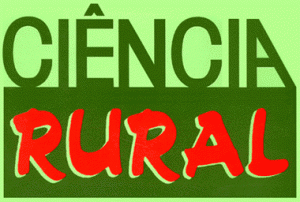By Marcela de Mello Brandão Vinholis, Pesquisadora, Empresa Brasileira de Pesquisa Agropecuária (EMBRAPA), São Carlos, SP, Brasil
The prior adoption of intensive livestock production systems, a larger scale of production and greater access by cattle ranch to specialized information, including through their network of relationships, are among the determining factors for the adoption of SISBOV traceability and certification in farms of beef cattle in the state of São Paulo. This is the conclusion of the study of researchers of the Brazilian Agricultural Research Corporation (EMBRAPA), the Federal Institute of Education, Science and Technology of São Paulo (IFSP) and the Federal University of São Carlos (UFSCar) in São Carlos, São Paulo, Brazil, published under the title “Adoption of beef cattle traceability at farm level in São Paulo State, Brazil” in Volume 47, Number 9 of 2017 of the journal Ciência Rural.
In order to identify the determinants in the adoption of traceability by cattle ranchers in the state, the researchers collected information from a sample of 32 producers who adopted and 52 who did not adopt the traceability certification for the European Union. The researchers used empirical studies on bovine traceability carried out at farms in Portugal and Taiwan, which present data on the applicability and/or failure factors of the adoption of these measures (MONTEIRO; CASWELL, 2009) (LIAO, et al., 2011). From the use of three binominal logit models, the researchers came to the factors of intensive livestock production system, high production scale, access to specialized information and network of relationships, represented by the class associations and groups of rural producers.
Traceability is one of the tools used to control food quality and safety. The SISBOV certification is a guarantee mechanism for the adoption of traceability and controls within the standards demanded by importers of beef, like the European Union. Access to these markets and even the expansion of exported volume require the dissemination of these practices among cattle ranchers, which can be fostered by surveying the factors that lead to the voluntary adoption of these practices by cattle ranchers.
Policy makers in their strategic actions to disseminate traceability and certification can use the results of the study. Rural producers, extension workers and consultants can also consider information and results in their strategic decisions.
References
LIAO, P. A., CHANG, H. H. and CHANG, C. Y. Why is the food traceability system unsuccessful in Taiwan? Empirical evidence from a national survey of fruit and vegetable farmers. Food Policy [online]. 2011, vol. 36, no. 5, pp. 686-693, ISSN: 0306-9192 [viewed 02 October 2017]. DOI: 10.1016/j.foodpol.2011.06.010. Available from: http://www.sciencedirect.com/science/article/pii/S030691921100087X
MONTEIRO, D. M. S. and CASWELL, J. A. Traceability adoption at the farm level: An empirical analysis of the Portuguese pear industry. Food Policy [online]. 2009, vol. 34, no. 1, pp. 94-101, ISSN: 0306-9192 [viewed 02 October 2017]. DOI: 10.1016/j.foodpol.2008.07.003. Available from: http://www.sciencedirect.com/science/article/pii/S0306919208000626
To read the article, access it:
VINHOLIS, M. M. B., CARRER, M. J. and SOUZA FILHO, H. M. Adoption of beef cattle traceability at farm level in São Paulo State, Brazil. Cienc. Rural [online]. 2017, vol. 47, no. 9, e20160759, ISSN: 1678-4596 [viewed 02 October 2017]. DOI: 10.1590/0103-8478cr20160759. Available from: http://ref.scielo.org/f6jzf8
External link
Ciência Rural – CR: <http://www.scielo.br/cr>
Como citar este post [ISO 690/2010]:
















Recent Comments